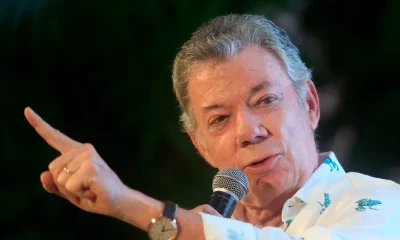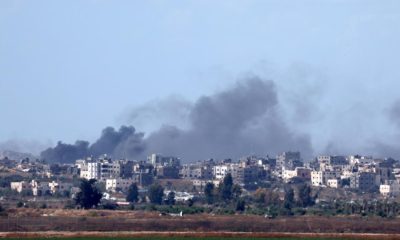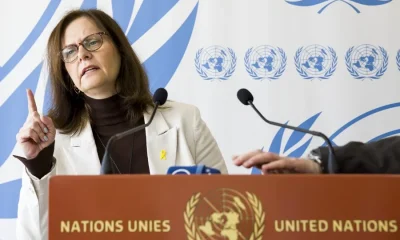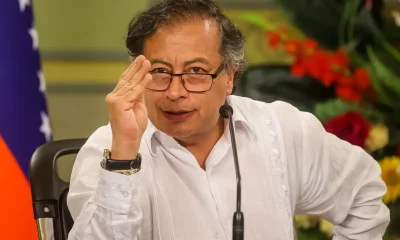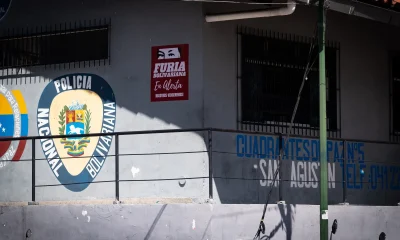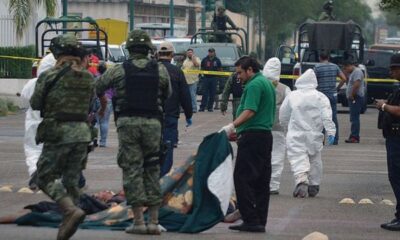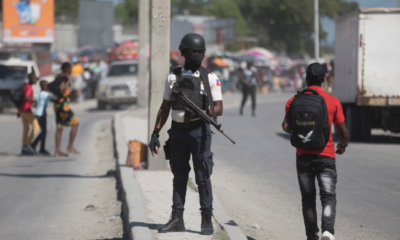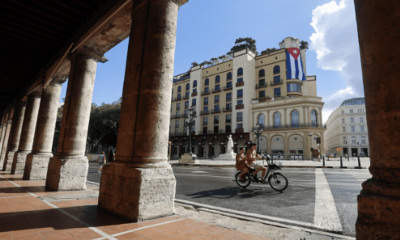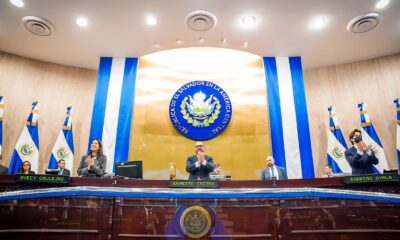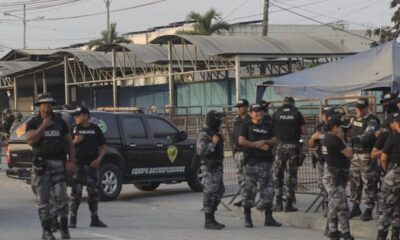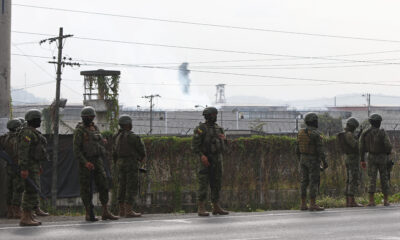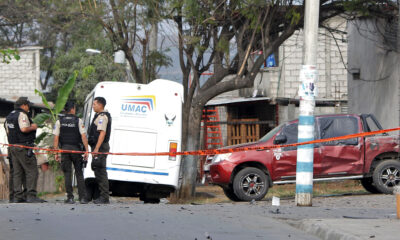International
More than 20 % have suffered violence, harassment at work: UN
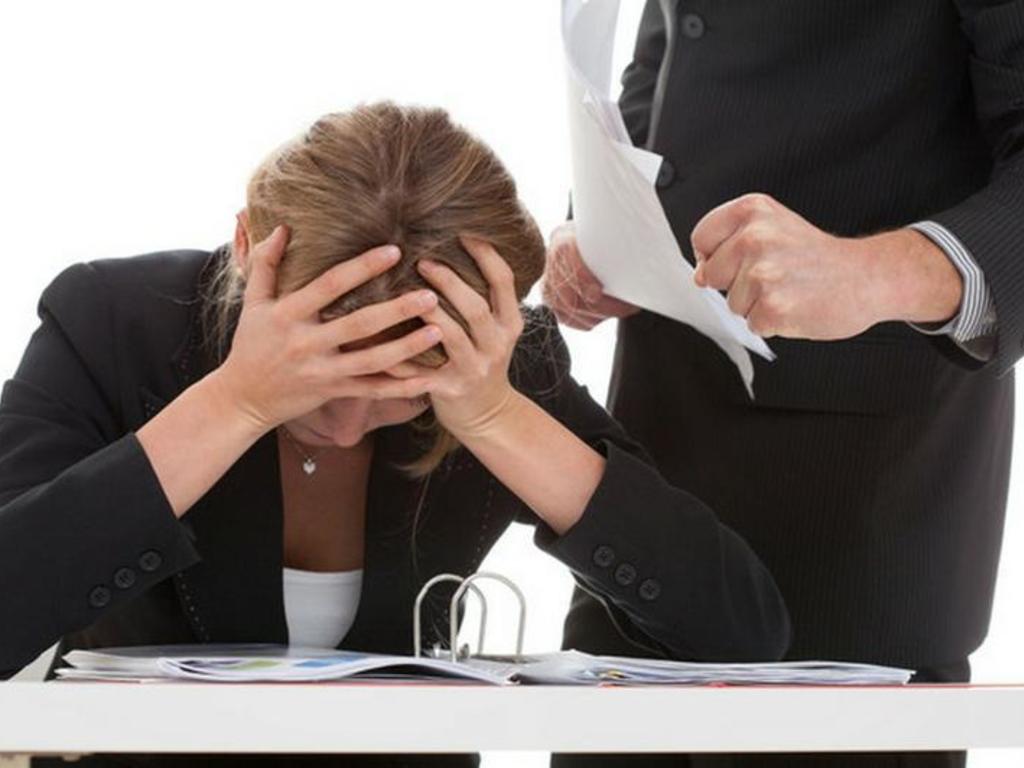
| By AFP | Christophe Vogt |
More than one in five people in employment worldwide have experienced some form of workplace harassment or violence, according to a survey released by the United Nations on Monday.
“Violence and harassment at work is a widespread phenomenon around the world,” the UN’s International Labour Organization said following a joint study by the ILO, Lloyd’s Register Foundation and pollsters Gallup.
The survey was a first attempt to produce a global overview of the magnitude and frequency of the problem, and the barriers that prevent people from talking about it.
It found that 22.8 percent — which would amount to 743 million people in employment — have experienced “at least one form of violence and harassment at work during their working life”, according to data collected last year.
Nearly a third of victims (31.8 percent) said they had been subjected to more than one form of violence and harassment, and 6.3 percent had experienced it in all three forms — physical, psychological and sexual — during their working life.
The survey was mainly conducted by telephone and the questions were formulated so they could be understood by as many people as possible.
The study found that the perception of what constitutes violence or harassment is not the same around the world: in some places, pushing someone could be seen as rude behaviour, but nothing further than that.
Psychological violence and harassment at work was found to be the most common, with 17.9 percent, or 583 million people experiencing it in their working life.
The survey found that 8.5 percent (which would amount to 277 million people) had experienced physical violence and harassment.
While women are more likely to have suffered psychological violence, men are more often the victims of physical violence, the study found.
Sexual violence
Violence and harassment of a sexual nature has affected 6.3 percent — approximately one person in every 15 in employment — with women “particularly exposed”, the ILO said.
Of the three forms of violence and harassment, it has the biggest gender gap: more than eight percent of women are victims, compared to five percent among men.
“Young women were twice as likely as young men to have experienced sexual violence and harassment,” the ILO added.
The study found that people who have experienced discrimination on the basis of gender, disability status, nationality, ethnicity, skin colour or religion in their lives were also more likely to have experienced violence and harassment at work.
Youth, migrant, and wage and salaried workers were more likely to face violence and harassment at work, particularly women, the study found.
The survey found that violence and harassment at work could be recurrent and persistent: more than three in five victims said it had happened to them multiple times.
It also found there were several barriers preventing people from disclosing incidents, with “waste of time” and “fear for their reputation” being the most common.
International
Trump Floats “Friendly Takeover” of Cuba Amid Rising Tensions

U.S. President Donald Trump said Friday that his administration is considering what he described as a “friendly takeover” of Cuba, as Washington continues to increase pressure on the island’s communist government.
“The Cuban government is talking to us and they have very serious problems, as you know. They have no money, they have nothing at this moment, but they are talking to us and maybe we will see a friendly takeover of Cuba,” Trump told reporters as he departed the White House for a trip to Texas.
Earlier in the week, U.S. Secretary of State Marco Rubio said Cuba needed a “radical change,” shortly after Washington eased restrictions on oil exports to the island for what officials described as “humanitarian reasons,” amid a deep economic crisis.
The United States has imposed an energy blockade on Cuba since January, citing what it calls an “extraordinary threat” posed by the communist-run island, located roughly 150 kilometers (90 miles) off the coast of Florida, to U.S. national security.
International
Argentina’s Senate Reviews Milei-Backed Labor Overhaul

Argentina’s Senate on Friday began reviewing the Labor Modernization Law promoted by the administration of President Javier Milei, a proposal that would significantly reshape labor rules across the country.
The upper chamber opened its final discussion of the contentious initiative, which revises the method used to calculate severance payments — lowering the amounts owed in dismissal cases — and introduces an “hour bank” mechanism that allows overtime to be offset with paid leave rather than extra wages.
The legislation also broadens the classification of essential services, a change that would place new limits on the right to strike in designated sectors.
The bill was initially approved by the Senate on February 11 and then moved to the Chamber of Deputies, where lawmakers passed it with amendments. It has now returned to the Senate for definitive approval.
Outside the Congress building in Buenos Aires, workers, trade unions and left-wing organizations staged demonstrations beginning at midday. The gathering later thinned out amid reports of disturbances and a strong police presence. Security forces had secured the area surrounding the legislature since early morning hours.
Union leaders contend that the reform weakens labor protections, while many business representatives back the measure but stress that sustainable formal employment will require economic expansion, improved credit conditions, greater investment and a more dynamic domestic market.
International
Federal Judge Blocks Trump Policy Allowing Deportations to Third Countries

A federal judge ruled on Wednesday that the policy of U.S. President Donald Trump’s administration allowing immigration authorities to deport foreign nationals to third countries without prior notice or the opportunity to object is unlawful. The decision marks another legal setback for the administration on immigration matters.
Judge Brian Murphy of the U.S. District Court for the District of Massachusetts struck down the regulation issued last year, which stated that Immigration and Customs Enforcement (ICE) was not required to notify migrants if they were to be sent to countries other than the one listed in their removal order, provided that receiving nations offered assurances they would not face persecution or torture.
Murphy ordered the measure vacated but granted a 15-day delay before the ruling takes effect, giving the Trump administration time to file an appeal.
In his decision, the judge concluded that the policy violates federal immigration law and migrants’ due process rights. He also questioned the lack of transparency surrounding the alleged assurances provided by receiving countries, stating that “no one really knows anything about these supposed ‘assurances.’” He added, “It is not right, and it is not lawful.”
The ruling follows several legal disputes involving deportations to third countries. Last year, the executive branch deported more than 200 Salvadorans to a maximum-security prison in El Salvador, invoking an old wartime law. The White House also held talks with Costa Rica, Panama, and Rwanda about receiving migrants who are not citizens of those countries.
In May, the same judge determined that the government violated a court order when it attempted to remove a group of immigrants with criminal records to South Sudan without prior notice or an opportunity to raise claims of fear of persecution.
Although President Donald Trump took the case to the U.S. Supreme Court, which temporarily allowed the deportations to resume while a final decision was pending, the White House is expected to again appeal to higher courts to overturn this latest judicial ruling.
-

 International2 days ago
International2 days agoFamily of “El Mencho” Seeks Return of Body After Deadly Military Operation
-

 International2 days ago
International2 days agoLarry Summers Steps Down from Harvard Role Amid Epstein Controversy
-

 International2 days ago
International2 days agoIran’s President Optimistic Ahead of Geneva Nuclear Talks with U.S.
-

 International2 days ago
International2 days agoStephen Hawking Photo Appears in Newly Released Epstein Documents
-

 International2 days ago
International2 days agoBill Gates Admits “Serious Mistake” Over Epstein Ties
-

 International4 days ago
International4 days agoOver 40 Million Affected by Major Snowstorm in Northeastern U.S.
-

 International1 day ago
International1 day agoCocaine Production Surges 34% in 2023 as Market Expands into Africa and Asia
-

 International4 days ago
International4 days agoNine People Killed in Two Armed Attacks in Manabí, Ecuador
-

 International1 day ago
International1 day agoFederal Judge Blocks Trump Policy Allowing Deportations to Third Countries
-

 International1 day ago
International1 day agoClinton Accuses Republican Committee of Using Epstein Case to Shield Trump
-

 International45 minutes ago
International45 minutes agoArgentina’s Senate Reviews Milei-Backed Labor Overhaul
-

 International44 minutes ago
International44 minutes agoTrump Floats “Friendly Takeover” of Cuba Amid Rising Tensions



























